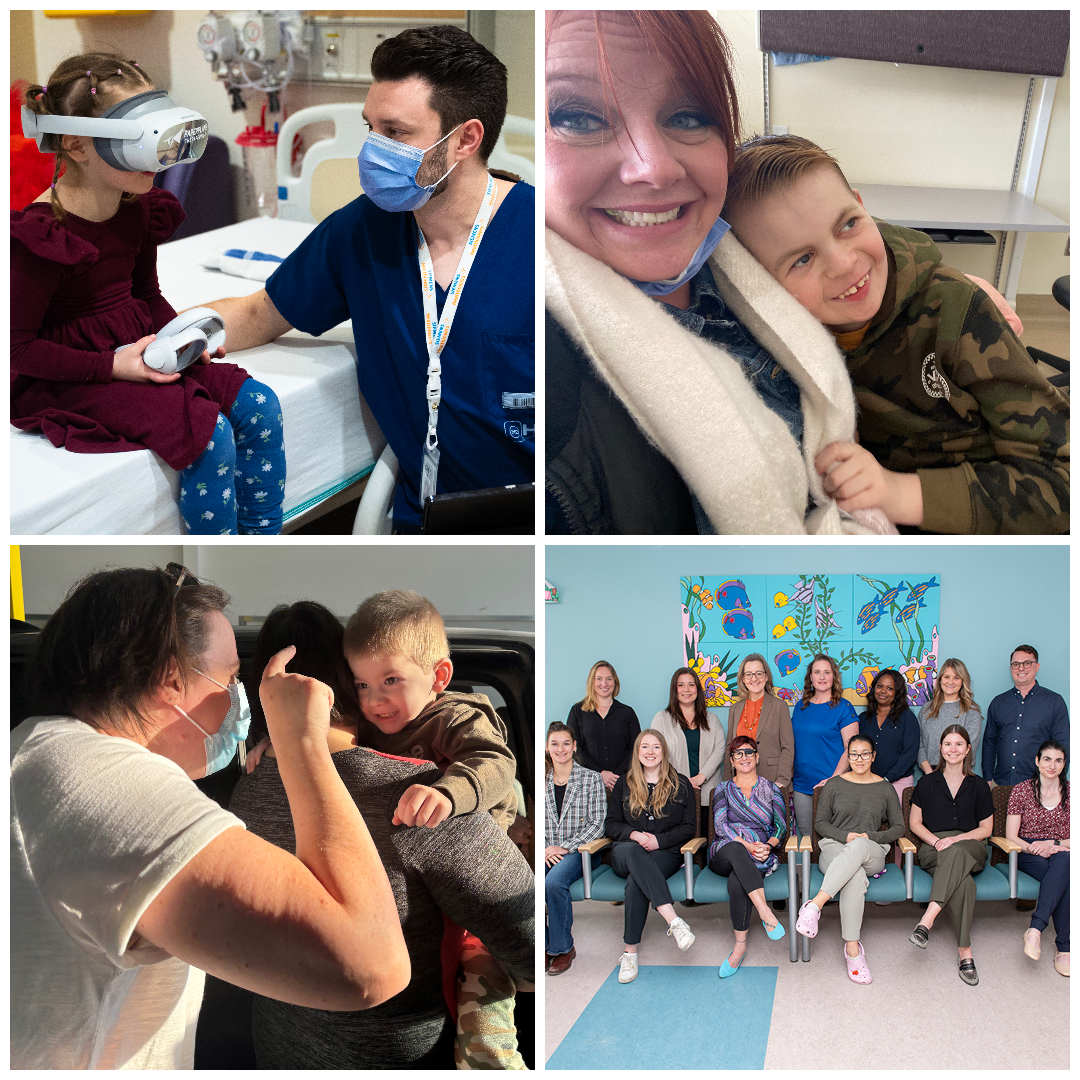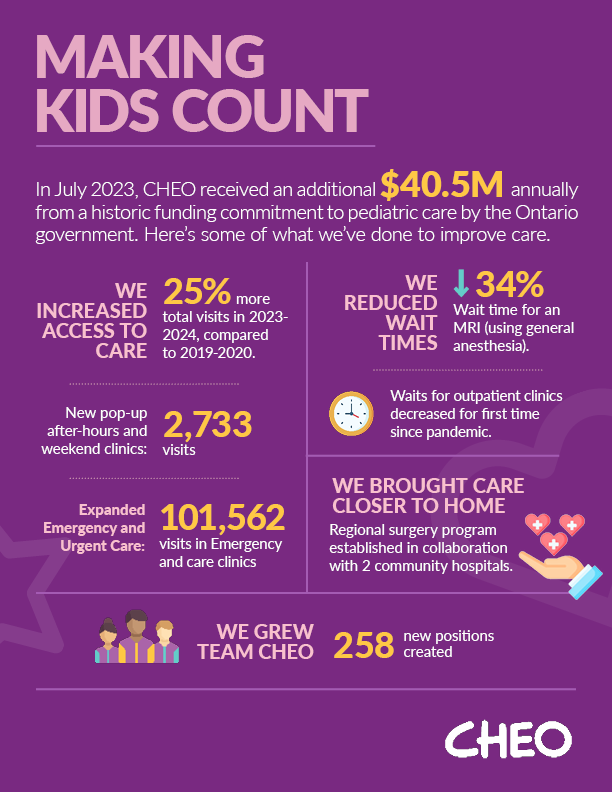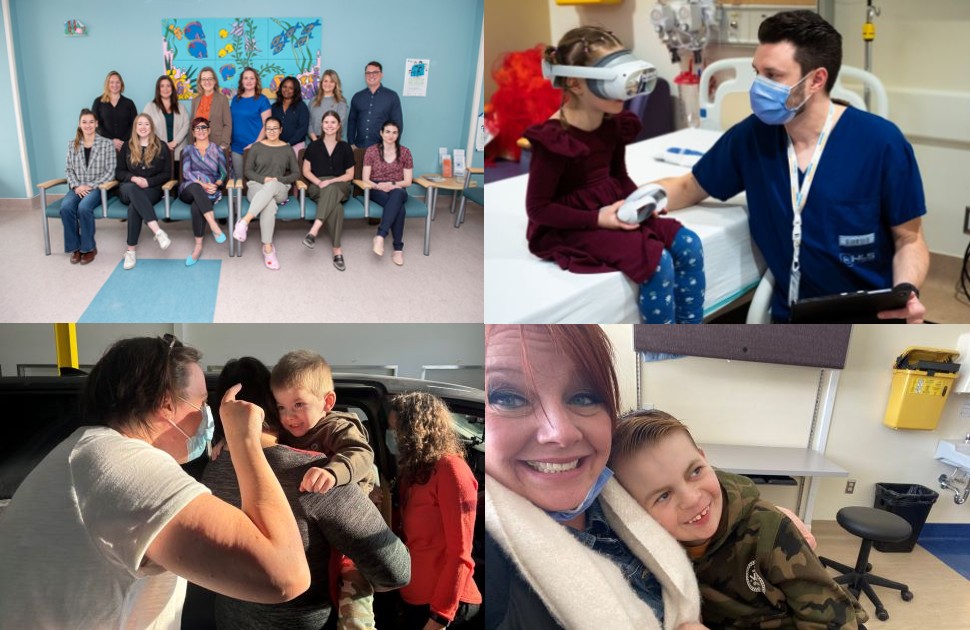
CHEO has taken the express lane in the past year to grow and transform thanks to historic government funding, which has helped Ottawa’s pediatric hospital shorten wait-lists, hire more staff, and capitalize on innovation to provide the best care to every child and youth.
Last July, after years of advocacy alongside the Children’s Health Coalition to right-size the pediatric health-care system, CHEO received $40.5 of the $330 million invested by the Ontario government to children’s health organizations.
The funding directly turned ideas into innovation with the hiring of hundreds of staff, all designed to support the hospital in addressing the increasing needs of children today and address long-standing issues such as wait-lists for surgeries, appointments, and medical imaging.
 With the new funding, CHEO set ambitious goals: 10 per cent more visits than four years prior. Instead, that goal was blown out of the water and 25 per cent, or 133,018 more visits, were booked between July 2023 to March 2024.
With the new funding, CHEO set ambitious goals: 10 per cent more visits than four years prior. Instead, that goal was blown out of the water and 25 per cent, or 133,018 more visits, were booked between July 2023 to March 2024.
Such an achievement can be attributed to the fact CHEO didn’t waste time putting ideas and plans into action. Starting in the late summer of 2023, steps began to alleviate pressures and shorten wait times for kids and their families.
As part of the strategy, resources and staff were added to the Kids Come First Care Clinic on the CHEO main campus and the East Ottawa Kids Care Clinic, which combined to see thousands of low-acuity patients who otherwise might unnecessarily arrive, and wait, in the Emergency Department (E.D.).
The hospital then added a Rapid Assessment Zone in the fall of 2023 to help streamline the flow of patients in the E.D. and ensure the right care is provided at the right time by the right care provider. This zone helped reduce the rate of families leaving without care by nearly 40 per cent.
Tackling the long wait for surgeries has also been at the top of the to-do list at CHEO. This led to a new partnership with nearby adult hospitals in Brockville, Ont., and Carleton Place, Ont., to provide surgeries to patients who live closer to those regions, as well as some Ottawa families willing to travel for surgery.
“We can meet children’s needs quicker and as a bonus, we’re building capacity across the region,” said Alex Munter, President and CEO of CHEO, at the time of the announcement in April.
Provincial government funding helped create that program. It also helped CHEO launch its new Centralized Access Team, which aims to ensure no appointment slot, opened by a cancellation or no-show, goes unfilled.
The hospital also temporarily offered thousands of after-hours appointments at its outpatient clinics to families in the evening and on weekends.
"Our lives are crazy busy right now, so having a weekend clinic was perfect,” said Rebecca Montanaro, whose 13-year-old son requires appointments at various CHEO clinics.
“We didn't have to fight the hustle and bustle of the busy hospital.”
These initiatives shortened waits for CHEO clinics including Medical Imaging (Ultrasounds, MRIs), Oncology, Neurology, Respirology, Rheumatology, Dermatology, Nephrology, Infectious Disease, Gastroenterology, among others.
Technology and innovation have also taken a larger role in improving access to pediatric care. The MRI clinic launched a successful program where certain children used virtual reality headsets to help them prepare for an MRI. They could then avoid a wait of more than a year for general anesthesia.
For this year, the hospital also more than doubled its budget for new equipment and technology thanks to the provincial government’s investment, which helped it purchase equipment that might not have arrived until 2027.
The money also helped fund initiatives beyond the hospital’s walls.
Over the winter of 2023-24, CHEO set up shop at a Dymon Storage location to provide car seat clinics to children and youth with complex physical challenges. This assisted families and educated them on the best ways to help their kids.
CHEO also launched a new mental health after-care programspecifically designed to support children, youth, and their caregivers after discharge, which aims to reduce the number of readmissions and the number of kids returning to theE.D. Studies show a follow-up within seven days can help avoid returns to hospital.
“The demand in mental health services has grown significantly over the years. It is important for our teams and programs to adapt to the increasing complexity of mental health issues,” David Murphy, director of CHEO’s mental health services, said in May.
Work continues across CHEO with each of these initiatives, and many others not directly funded by the Ontario government.
Last year’s allocation was designated for hospital staffing. Doctors are not CHEO employees, and the funding could not be used to right-size our medical staffing. Separate discussions are underway with the Ministry of Health to achieve this important objective.
Meanwhile, the redevelopment of the hospital’s main campus continues, including the construction of the new Integrated Treatment Centre to open in the coming years.
CHEO couldn’t accomplish these lofty goals without hiring talented staff, including the 258 new people joining the hospital thanks to funding from the Ontario government.





